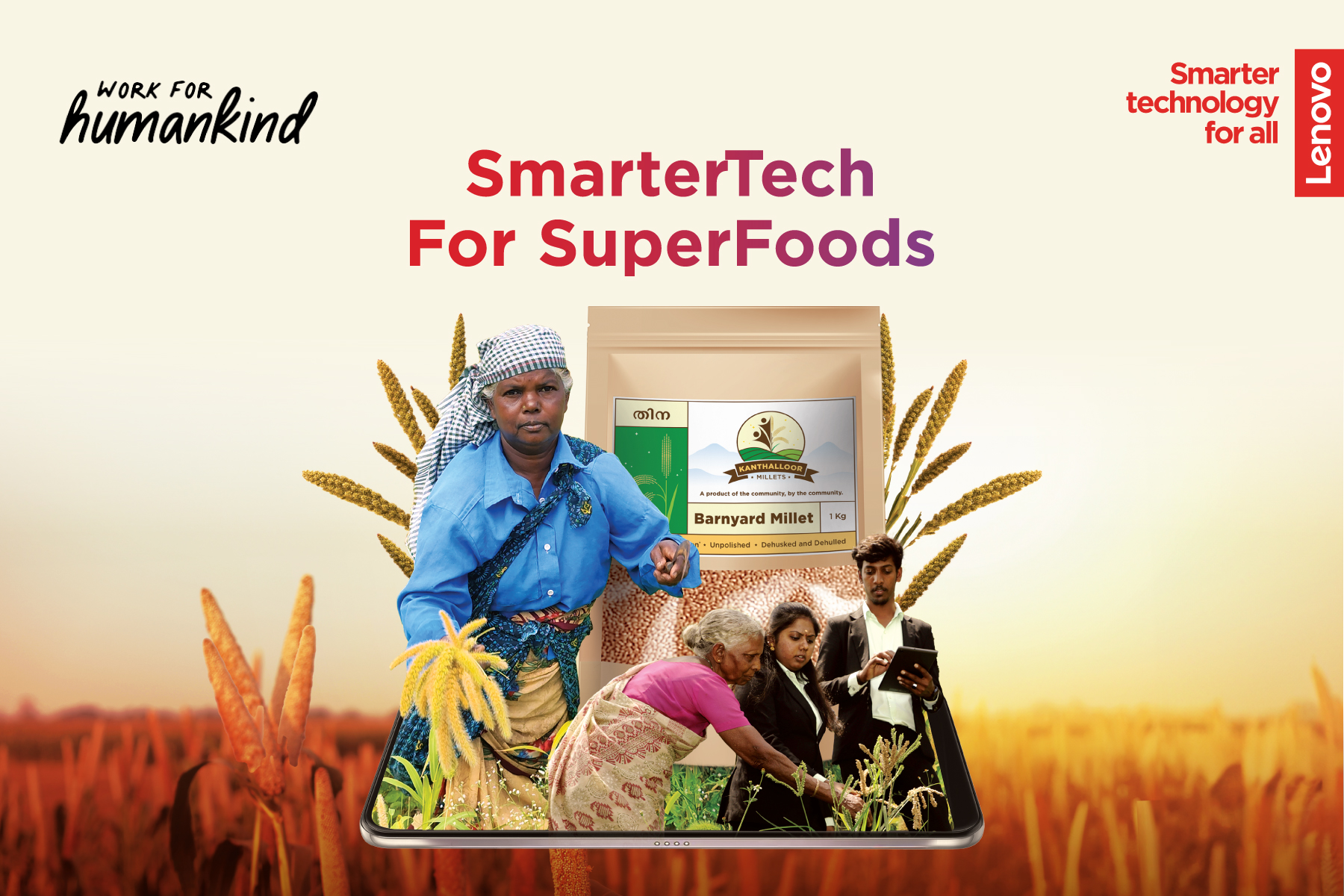India’s agricultural sector is adopting technology to boost productivity and farmer income. However, this shift has led to the decline of indigenous crops like millets in favour of more profitable cash crops. Consequently, local diets are changing, malnutrition is rising, and sustainable farming practices are diminishing.
Our quest for a sustainable cause in India, that demonstrated a positive change for people and the planet, enabled by technology, led to this multi-stakeholder farm-to-kitchen prototype for the revival of six millet varieties in eight months.
Strategy:
Honouring the significance of these “first foods” for tribal communities, we reintroduced memories, recipes, and sustainable farming practices to a region unaware of the global promotion and consumption of grains they had stopped growing.
We effectively conveyed and initiated the project through collaboration with local communities, opinion makers, and institutions the farmers trusted, such as the forest department, gram panchayat, local college (IHRD) faculty and students.
Recognizing the potential intimidation factor of unfamiliar technology, we enlisted computer science graduates as student volunteers to drive digital familiarization. We engaged with the IHRD College of Applied Science to establish the Lenovo Digital Center for Kanthalloor Millets, where these student volunteers received training. These students served as the crucial bridge between the farmers and technology, facilitating adoption and information exchange. The Digital Center facilitated community access to technology tools, government schemes, and peer learning, transforming farming practices.
Through surveys and discussions with farmers, villagers, and experienced elders, we gathered indigenous best practices for successful re-sowing. These insights not only aided farmers but also enabled the local government to secure additional funding, addressing the human-animal conflict and minimizing crop damage. Lenovo partnered with Samudra Network and Agri App to digitize the millet farming value chain, enhancing crop management, quality control, and market reach through data insights.
We discovered a crucial gap in the millet production cycle – farmers lacked the knowledge and infrastructure to make their harvested grains market-ready. In response, Lenovo took proactive steps by establishing a Millet Processing Center in Kanthaloor, run by the Kudumbashree Self-Help Group. Additionally, Lenovo contributed to the branding and packaging design, introducing ‘Kanthaloor Millets’ to give the grains a distinct identity and presence in the market. They also established a seed bank and sales hub, helping millets reach consumers beyond the Kanthalloor pincode.
Finally, we garnered visibility for this farm-to-kitchen prototype by targeting local media, culminating in national coverage through a FAM tour. Nutrition influencers and millet revivalists joined in, attracted by the project’s story. Identifying individuals aligned with the cause, especially within the farming community, was crucial for success.
Results:
A Public Relations campaign with stakeholder engagement at its core fuelled the success of this campaign, earning media attention and goodwill, with millets making a comeback in Kanthalloor.
Millet cultivation increased fivefold, with 50 farmers now growing 6 varieties across 15 hectares. It also impacted local nutrition, with millet meals introduced in schools for 1000 children.
Through over 1600 hours of volunteering by Lenovo employees, students, and the community, 300 farmers were digitally empowered through the Lenovo Digital Center for Kanthalloor Millets.
‘Kanthalloor Millets’, are currently selling at 10 homestays and will expand to over 50.
The initiative garnered significant media attention, generating 145 clips with 302 million impressions. Social media engagement flourished, with influencer content reaching millions.




